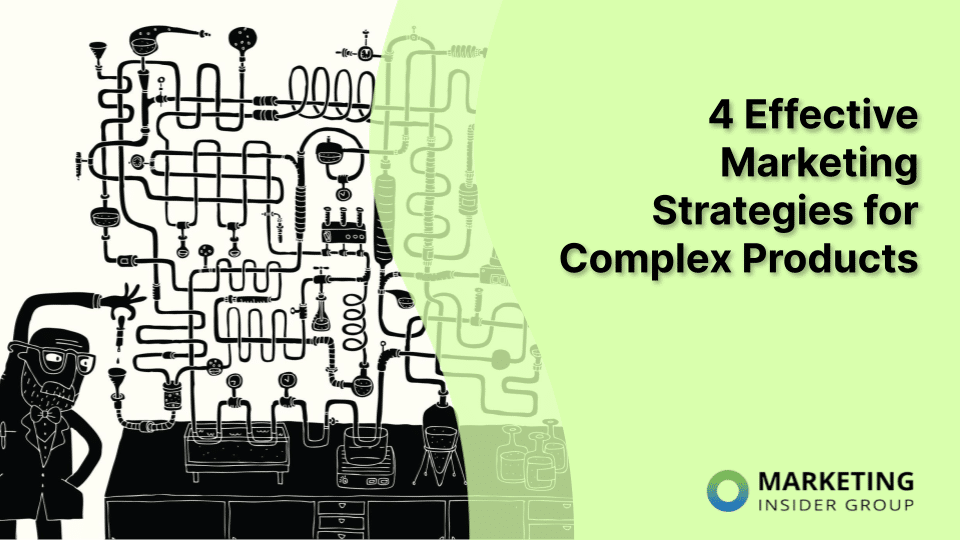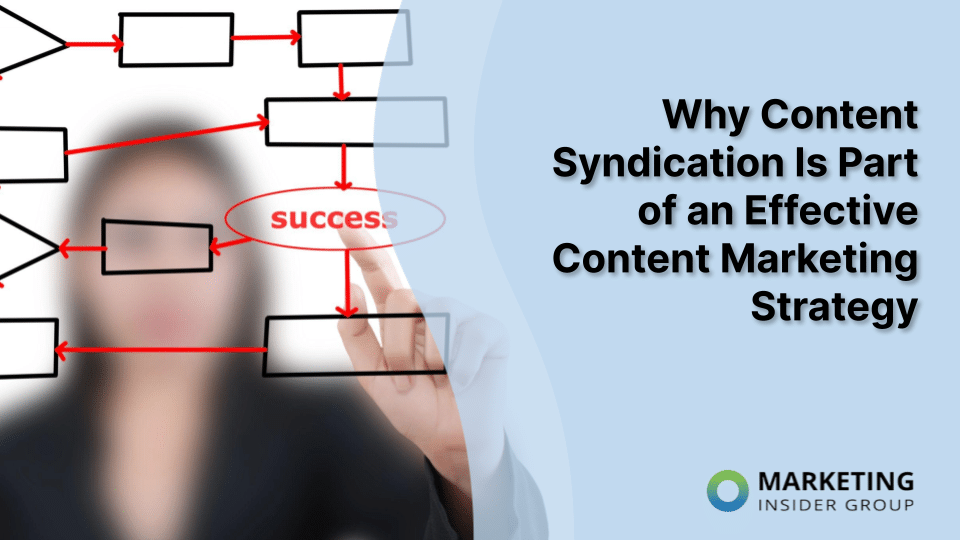
4 Effective Marketing Strategies for Complex Products
Effective marketing strategies for complex products are essential to driving business growth. The strategies help build awareness, boost engagement, provide comprehensive customer experiences, and increase brand loyalty. At the end of the day, a good marketing strategy generates revenue that is pivotal for both sustaining and scaling a business.
The problem is that you can’t use the same marketing strategy over and over again like a generic template. Every product is different. It has its quirks, advantages, concerns, and one-of-a-kind elements. This means you must adapt your marketing campaigns around the products that they promote.
Even when you’ve crafted a good strategy, you can’t leave it on auto-pilot. You must both become and remain creative throughout the marketing process to stand out in a competitive market — even when promoting a complicated or confusing product.
How to Create Marketing Strategies for Complex Products
There are a few ways you can build a successful marketing strategy that delivers measurable results, even if you’re promoting the most sophisticated and complex products.
1. Start With the Customer
If you want to build a good promotional strategy to sell a complex product, start with the customer. Traditional marketing starts with the product. You evaluate the features and benefits and then consider how these can fit into consumer needs.
Effective marketing works in reverse. It starts with the target customer, considers their motivations, and then attempts to line up both existing and future products to meet those needs.
This is called empathetic marketing. It is a deliberate attempt to see through your customers’ eyes and gain a deeper understanding of who they are, the challenges they face, and why they might take action to seek out your solutions.
If you find yourself tasked with marketing a complex product, start by setting that product aside and studying the target audience. What are the pain points and problems of those you want to sell to? Seek out knowledge that allows you to personally target every sale. Look for ways to genuinely benefit each consumer in an effort to address their current needs and build long-term loyalty — all while also moving even your most intricate products off the shelf.
2. Invest in Educating Consumers
Google’s increasingly sophisticated search algorithms are making content both more and less important. Let’s explain how that’s possible.
On the one hand, AI tools are making poorly-made or generic content redundant and irrelevant. If you create a simple 101 blog article, there’s a good chance it won’t be able to compete with the already-entrenched resources online that address the same subject.
On the other hand, the ability to provide industry-leading insights as a subject matter expert (SME) has never been more valuable as a marketing tool. Unique insights sourced from deep knowledge and experience are valuable to consumers, and Google’s search engine is more aware of that than ever before.
With this in mind, it’s important to emphasize the quality, accessibility, and purpose of your marketing content. The content creation experts at Contiem recommend using things like conversational tone, personal pronouns, short sentences, and a visually appealing format to create meaningful product documentation.
This kind of user-oriented content enhances the customer experience. It also improves usability for your products and services.
If you struggle to generate hyper-targeted, authoritative content, consider working with a content creation partner for this kind of work. A content creation, management, and delivery firm brings a sense of professionalism and quality to your content. This is crucial in a search world driven by Google’s E-E-A-T standards. It can help you channel your unique industry insights and knowledge into relatable content while simultaneously speeding up the process and cutting down on costs.
3. Emphasize a Simple, Streamlined Message
Simplicity is the ideal antidote to complexity. When a product or service becomes overly complicated to explain, the goal of a marketing team shouldn’t be to cover every unique detail or benefit. It should be to emphasize a simple, streamlined message.
This could focus on the biggest benefit of a product. Productivity brand Zapier, for example, differentiates itself from the crowd by emphasizing its ability to automate workflow without coding. That last bit is important. There are many brands that offer ways to simplify and automate work. Zapier’s message is that, sure, people can automate things, but more importantly, anyone can use the tool to automate things, even if they aren’t tech-savvy.<
Honing in on a specific unique selling proposition (USP) makes it possible to use a simple message to sell a complicated product. Rather than explain the product itself, focus on the most important benefit that it provides the user. This is marketing 101, but it’s easy to stray from what works when you’re overwhelmed with the technicalities of a more complex offering. Don’t let that throw you off.
Start by putting yourself in your ideal customer’s shoes. (See strategy #1.) From there, consider the product you’re trying to sell. Gauge its greatest benefits and look for the ways these answer customer pain points.
Here comes the tough part. Figure out what benefits matter most and which ones aren’t worth bringing up in a pitch. What awesome product elements must lie dormant while you focus on driving home the one or two USPs that matter? It can be hard to truncate your pitch, but streamlining and simplifying are powerful strategies to help your product resonate with your target audience.
4. Use User-Generated Content
One of the best ways to reach your target audience is through your audience members themselves. User-generated content (UGC) is a unique and effective way to have consumers promote your products to one another.
User-generated content can consist of a variety of different content types. For instance, you can generate UGC from case studies, social posts, surveys, and testimonials.
Testimonials are particularly effective marketing tools when it comes to complicated products. They can highlight both the customer journey and the customer experience. They can showcase your brand’s value, both as a consumer works down the sales funnel and after the point of sale.
A positive testimonial reflects loyalty and sends the message that a product, however complex, is worth investing in. Don’t be afraid of opening yourself up to bad feedback, either. Even a negative testimonial or review allows you to address customer concerns in public, showing that you are ready to provide support and help them adopt a more confusing or complicated product.
If you want to promote a complex product effectively, start asking for feedback. Garner testimonials that you can proudly display and proactively address negative reviews as ways to encourage others to take the leap and patronize your brand.
Making the Process of Marketing Complex Products a Breeze
At the end of the day, the way you market a product is fundamentally the same. It doesn’t matter if you’re selling a sophisticated piece of software or a spoon. You need to find the ways that a product benefits a user and then communicate that message to the right consumers looking for that solution.
In the case of complex products, it’s important to stay simple, empathetic, and educational. A relatable and informed approach will earn you sales — and once those come in, you can begin to request user-generated content in the form of testimonials to supercharge your marketing campaign over time.
Just remember, when it comes to marketing complex products, less is more.






